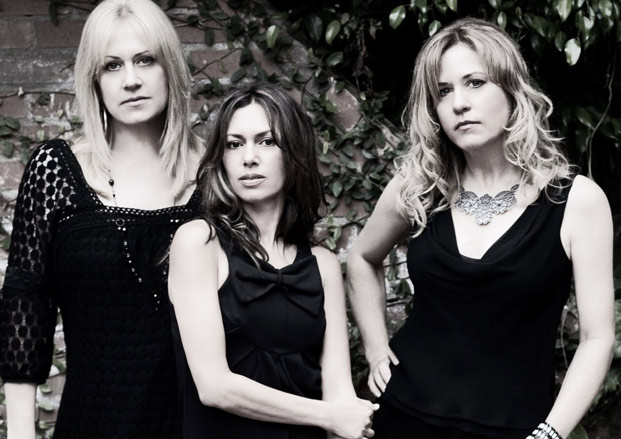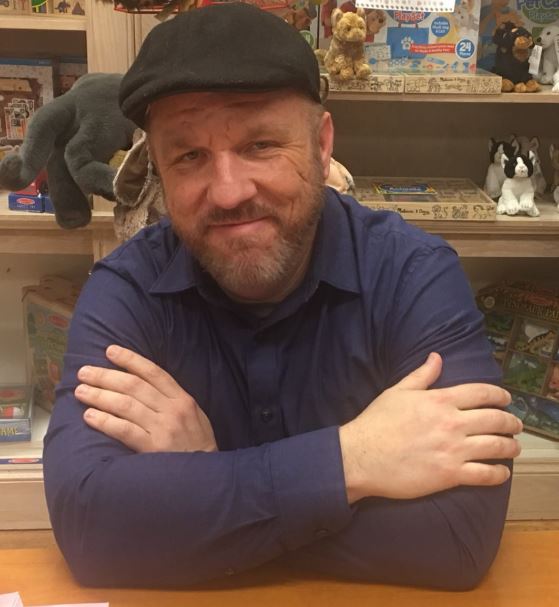Bangles Guitarist Vicki Peterson Discusses the 30th Anniversary of ‘Different Light’

When the Bangles released their sophomore album, Different Light, in 1986, it represented something of a departure from the guitar-driven, Sixties-oriented sound the band had been known for.
With its eclectic mix of radio-friendly pop, dance and Motown groove, Different Light would go on to become one of the year’s biggest albums, yielding the hits “Walking Down Your Street” and “If She Knew What She Wants,” plus the Prince-penned “Manic Monday."
The album also gave the Bangles their first Number 1 song, the quirky yet strangely infectious “Walk Like an Egyptian."
Below, Bangles guitarist Vicki Peterson recalls the making of Different Light and the tidal wave of success that followed. We also discuss her current work with the Bangles, the Psycho Sisters and Continental Drifters, gear and more.
When you look back at Different Light with 30 years of perspective, what comes to mind?
Different Light was a really important record for us and transitional in some ways. We had started out as a very raw garage band, and the first full record that we did with Columbia had more of that Sixties, guitar-rock sound. Different Light has some songs that kind of veered away from that. In some ways, it was a little uncomfortable, but new things always are.
What prompted that change in direction?
Get The Pick Newsletter
All the latest guitar news, interviews, lessons, reviews, deals and more, direct to your inbox!
We were trying to feel our way through growing up as a band, and that started happening with that record. It was a band decision. Instead of staying in one spot musically and working directly from that Sixties, guitar-based platform, we launched into other things. David Kahne (producer) did a lot to take any ideas we had and was musically creative as an arranger. He was actually the one who brought us “Walk Like an Egyptian."
How did that song come about?
We had the album put together for the most part when David came into a rehearsal one day with that song on a tape. It was so left of center and whacky but was such a cool demo that we knew we had to try it. It was kind of genius and something that we would never write.
Prince wrote “Manic Monday” for the album. How did his relationship with the band begin?
Prince was around when our first record, All Over the Place, came out. We did a video for “Hero Takes a Fall” and he had seen it. He was always on the look out for young, interesting bands and contacted us while we were recording and told us he had a song for us. I also remember he would sometimes just show up at our shows. We would be there playing and would get a message backstage saying, “Prince is here—and he wants to play.” So I’d be like, “Here, take my Les Paul!” [laughs]. It was crazy.
What can you tell me about the time the Bangles opened for Queen in 1986?
It was actually just for one show at Slane Castle. Watching that band take charge of the stage and being able to stand in the wings and watch Freddie Mercury is still a career highlight. It was one of those "pinch me" moments where we all just looked at each other as it was happening and said, “Yeah, we just opened for Queen!”
What’s your setup like these days?
In Bangle world, I’ve been using my Super that I’ve had since the Eighties. I used to play a ‘65 Deluxe for years but it got drowned during Hurricane Katrina. But last year, I was doing a show with my band, the Continental Drifters, in LA and when I got there for sound check I noticed this Deluxe sitting on stage that looked kind of familiar. Then as I got closer I remember thinking, “No. This can’t be!” But it turned out that my bandmates had resurrected my amp by sending it to an expert who brought it back to life! My go-to guitars on stage are a ’73 Les Paul Custom and my Daisy Rock Bangle Signature Model that stands in for my ’67 Strat, which I don’t take on the road anymore. It’s light and very playable and I love the mini-humbuckers.
What can you tell me about your relationship with Daisy Rock Guitars?
It’s a wonderful company because they’re so involved with the community. Every year, Daisy Rock funds a scholarship for a young woman studying guitar at Musicians Institute in Los Angeles. The person selected gets a new Daisy Rock guitar and some money to help with their studies. They just have to apply for the scholarship and love guitars.
What projects are you working on right now?
Susan Cowsill and I recorded a Psycho Sisters album in 2012 and it came out last year. That was a blast, and we toured a little on it. That was a project that was very close to my heart and I was very pleased to finally get that out because it was something that’s sat in the back of our heads for the last 20 years. I’ve also been working for the past year with my husband John Cowsill and Bill Mumy on a record we’re putting the finishing touches on. Bangle-wise, we’re working on putting together a new tour for the summer as well as getting some new material together. It’s a very exciting time!
For more about the Bangles, visit thebangles.com.
James Wood is a writer, musician and self-proclaimed metalhead who maintains his own website, GoJimmyGo.net. His articles and interviews are written on a variety of topics with passion and humor. You can follow him on Twitter @JimEWood.
James is a guitarist and freelance writer who's interviewed some of the biggest names in music. He is the author of four books and his writing credits include work for Guitar World, AXS and Yahoo! as well as for his hometown newspaper where he writes on a variety of topics with both passion and humor. As a guitarist, he's performed everywhere from local bars and nightclubs to some of the biggest stages in front of thousands of music fans.
“His songs are timeless, you can’t tell if they were written in the 1400s or now”: Michael Hurley, guitarist and singer/songwriter known as the ‘Godfather of freak folk,’ dies at 83
“The future is pretty bright”: Norman's Rare Guitars has unearthed another future blues great – and the 15-year-old guitar star has already jammed with Michael Lemmo










